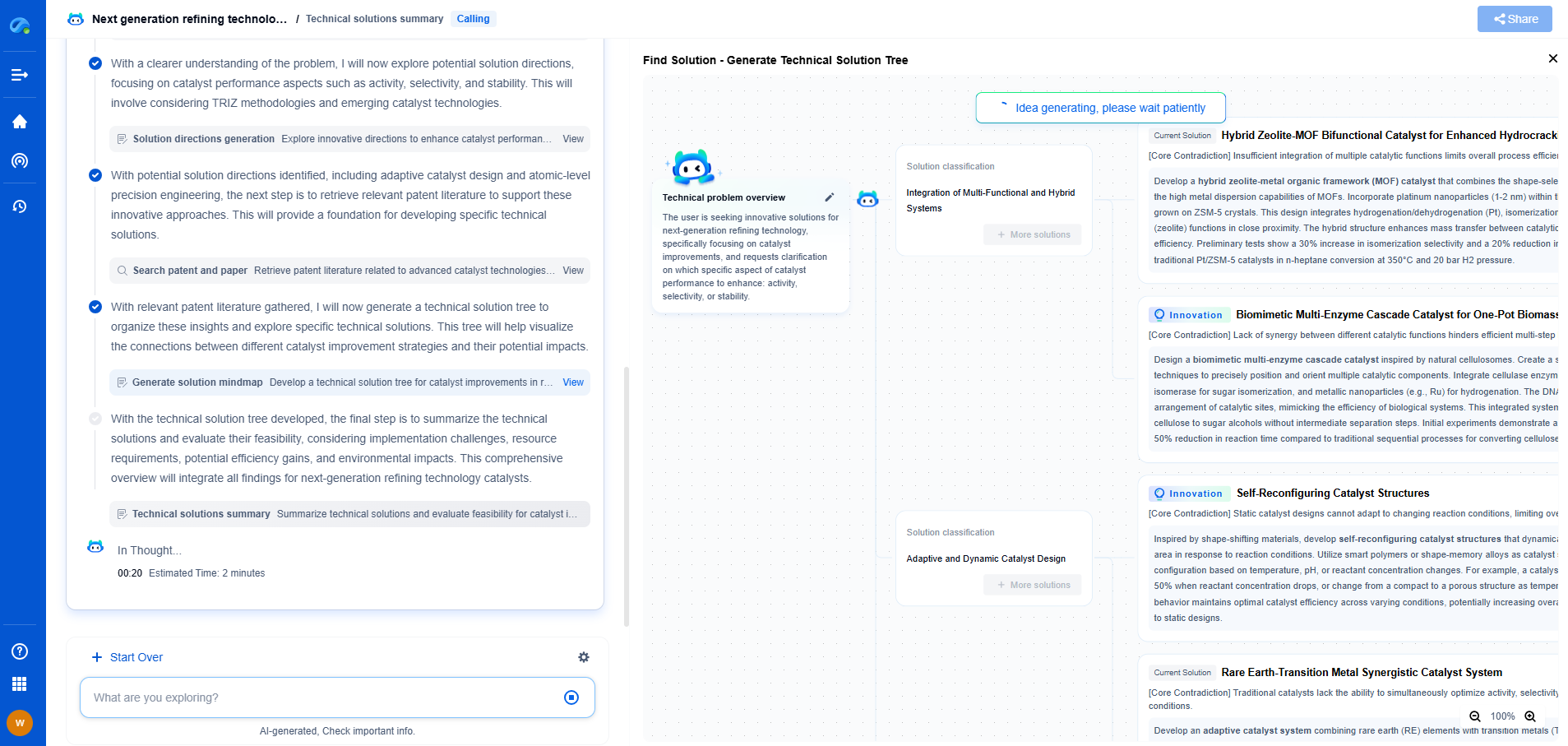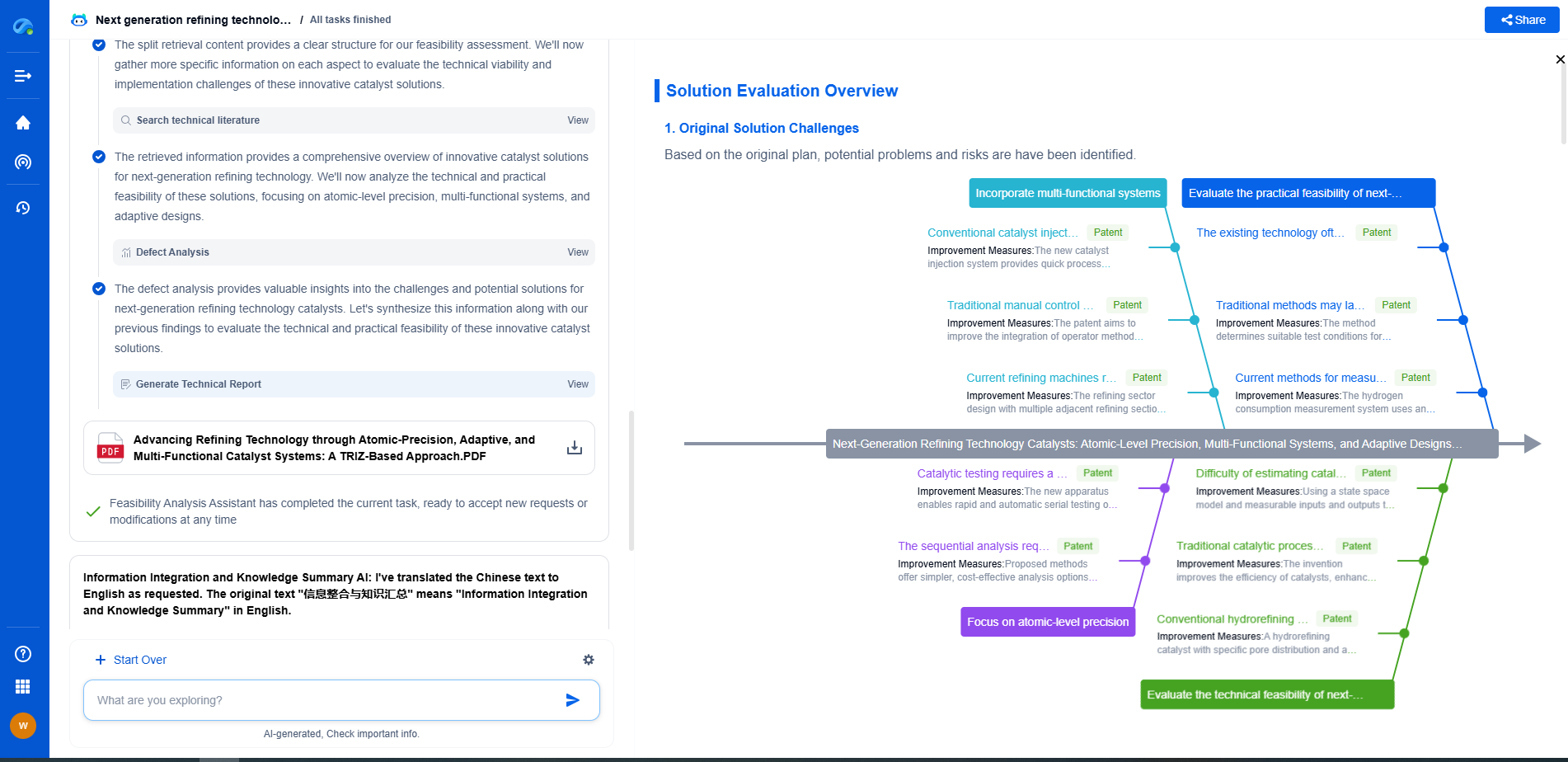Enterprise vs Consumer Routers: When to Invest in Carrier-Grade Gear
JUL 14, 2025 |
Understanding the Basics
Before diving into comparisons, it's essential to understand what differentiates enterprise routers from consumer routers. Consumer routers are designed for home use, offering basic functionalities required for standard internet activities, such as browsing, streaming, and connecting smart devices. They are typically cost-effective, easy to set up, and cater to a limited number of users.
On the other hand, enterprise routers are engineered for businesses that demand robust network solutions. They support higher traffic loads, enhanced security features, extensive configuration options, and typically offer better performance and reliability than their consumer counterparts.
Performance and Scalability
One of the principal differences between enterprise and consumer routers is performance and scalability. Consumer routers tend to have limited processing power, making them less suitable for environments where multiple users or devices are connected simultaneously, or where data-intensive applications are regularly used.
Enterprise routers, conversely, are built to handle heavy network traffic with ease. They come equipped with advanced hardware that ensures consistent performance even under high load conditions. Moreover, they provide the scalability needed as businesses grow, accommodating new users and devices without a hitch.
Security Features
Security is a critical consideration for any network. Consumer routers generally provide basic security measures, such as WPA/WPA2 encryption and built-in firewalls. While these features are adequate for home networks, they may fall short in protecting sensitive business data.
Enterprise routers, however, come equipped with comprehensive security capabilities, including advanced firewall options, intrusion detection systems, VPN support, and more granular user access controls. These features help safeguard business networks from a host of potential threats, ensuring data integrity and privacy.
Management and Configuration
Ease of management and configuration is another area where these two types of routers diverge. Consumer routers are straightforward to set up and manage, often requiring minimal technical know-how. However, this simplicity comes at the cost of limited configurability.
In contrast, enterprise routers offer extensive management and configuration options, allowing IT professionals to tailor the network settings to meet specific business needs. This includes the ability to create virtual LANs, implement quality-of-service policies, and monitor network performance through detailed analytics.
Cost Considerations
Cost is often a decisive factor when choosing between consumer and enterprise routers. Consumer routers are considerably more affordable, making them ideal for small businesses or startups operating on a tight budget. However, the initial savings can be outweighed by potential costs associated with downtime, security breaches, or the need for frequent upgrades.
Enterprise routers represent a more significant investment upfront, but they offer long-term benefits through improved reliability, performance, and security. For businesses where network integrity is paramount, the additional cost is often justified.
When to Make the Leap to Enterprise Routers
Deciding when to invest in carrier-grade gear depends on several factors. Businesses experiencing rapid growth, handling sensitive data, or requiring high uptime and performance should consider the shift to enterprise routers. Moreover, if your current consumer router struggles to support your network demands, or if you need advanced security and management features, making the leap is advisable.
Conversely, small businesses with limited network requirements or those still in the early stages might find consumer routers adequate for their needs. The key is to evaluate your specific requirements, growth projections, and risk tolerance when making the decision.
Conclusion
In the debate between enterprise and consumer routers, the right choice depends on your business's unique needs and priorities. While consumer routers offer an affordable, easy-to-use solution for basic networking needs, enterprise routers provide the performance, security, and scalability required for more demanding environments. By carefully assessing your network requirements, you can determine the most suitable option, ensuring a reliable and secure network infrastructure that supports your business's goals.
From 5G NR to SDN and quantum-safe encryption, the digital communication landscape is evolving faster than ever. For R&D teams and IP professionals, tracking protocol shifts, understanding standards like 3GPP and IEEE 802, and monitoring the global patent race are now mission-critical.
Patsnap Eureka, our intelligent AI assistant built for R&D professionals in high-tech sectors, empowers you with real-time expert-level analysis, technology roadmap exploration, and strategic mapping of core patents—all within a seamless, user-friendly interface.
📡 Experience Patsnap Eureka today and unlock next-gen insights into digital communication infrastructure, before your competitors do.
- R&D
- Intellectual Property
- Life Sciences
- Materials
- Tech Scout
- Unparalleled Data Quality
- Higher Quality Content
- 60% Fewer Hallucinations
Browse by: Latest US Patents, China's latest patents, Technical Efficacy Thesaurus, Application Domain, Technology Topic, Popular Technical Reports.
© 2025 PatSnap. All rights reserved.Legal|Privacy policy|Modern Slavery Act Transparency Statement|Sitemap|About US| Contact US: help@patsnap.com

